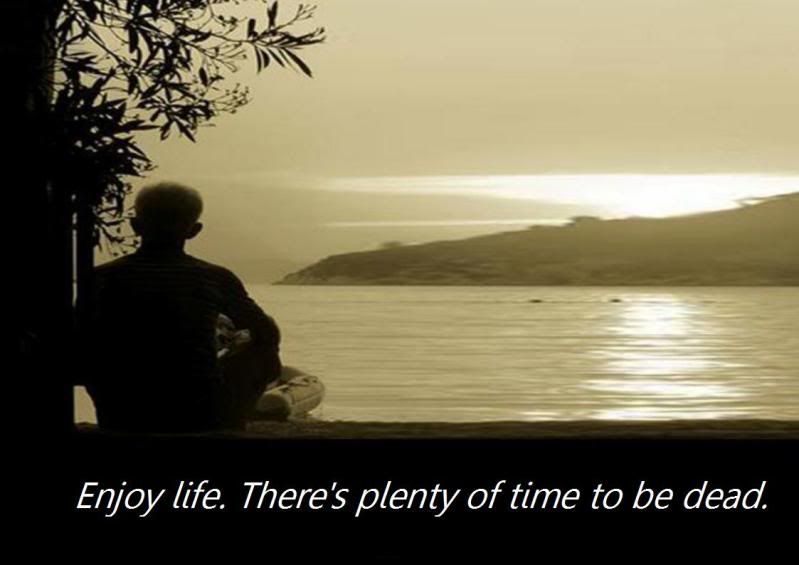Love Or Need?
Why do relationships end miserably? Well, most of the time that happens because the foundation upon which such relationships are initially based on is faulty.
If you ever stop to reflect on the underlying reasons why many individuals enter into relationships in the first place, you will notice that the issue of having un-met expectations met is a key theme.
Un-met expectations essentially equate with ‘needs’; the need to be loved, the need to end one's loneliness, the need to be cared for, the need to be emotionally supported, the need to be financially supported, the need to be validated, the need to feel secure etc.
When an individual feels that they are likely to have these un-met needs, met by someone they meet, they start to feel excited and then make a fatal mistake - the mistake of interpreting this ‘excitement’ as feelings of ‘love’.
Why is this a mistake? Well, first of all it’s because ‘need’ and ‘love’ are two very different things. They are not only different, they are actually the direct opposite of each other.
When a ‘relationship’ is based on ‘need’, there is often an unconscious contract the individuals in that relationship make with each other. A contract that is rarely ever made conscious and hence is rarely ever discussed openly. This contract goes something like this, "I'll meet your needs if you meet my needs". The willingness to enter into such a contract is what many call an act of ‘love’.
The reason the contract is never made openly is because if it were, it would require each individual to be honest with themselves and with their partner as to the reasons why they desire the relationship in the first place. Being honest, however, means being honest with one's self first and admitting to one's self that the underlying needs exist in the first place.
But this personal honesty is feared because with it comes negative feelings such as shame, embarrassment, inadequacy, weakness, vulnerability, rejection and many more. Hence, what tends to happen is that each individual finds themselves ‘lying’ to themselves and to their partner about why they want the relationship.
Of course, no lie will go undetected forever. During the course of the relationship, sooner or later, one or the other will begin to feel a sense of ‘emotional emptiness’ or ‘boredom’. These feelings emerge after the initial ‘excitement’ phase has worn off. These feelings are an indication that there is nothing else really holding this relationship together short of the ‘needs’ that initially were in play. In other words, there is no ‘love’ between the couple. Then as the boredom sets in, there is less motivation to go on trying to meet the other's needs and this breaks the unspoken contract.
This is when individuals generally start arguing with each other and one hears such statements as, "You don't love me because you're no longer interested in making me happy". This is when it almost becomes clear that something has gone terribly wrong. What happens next is that the arguing caused by the feelings of betrayal and hurt, distract the individuals from reflecting on the true cause of the problem and hurtle themselves into the eventual separation.
This distraction has many untoward effects. One is that, it causes the awareness of the ‘needs’ issue to become submerged, thereby getting repeated in the next relationship. Secondly, it causes individuals to blame ‘love’ for causing all the heartache. The heartbroken lover, who is building a case against love and against their heart, will create a deeper feeling of ‘need’ than was there to start with. This of course has the tendency to create even greater expectations for the next relationship.
No wonder the same self-destructive pattern repeats itself.
Needs and attachments create fear, pain and suffering. Whenever we feel pain, fear or anger in our relationships, it is because we believe that our needs are in danger of not being satisfied. When this happens, our ‘love’ turns to hurt, disappointment, fear, loneliness, inferiority or bitterness and sometimes, anger, hate, rage and desire for revenge.
How can love become all these negative emotions? It cannot. The simple truth is that our emotion never was pure love to begin with. It was an ‘attraction’ based to some degree on needs. This does not mean that we should reject ourselves because we have seldom really loved purely. It is only natural that we cannot yet love unconditionally but we can take steps towards opening our heart to real love.
The power of attraction which we call love is expressed on many levels and in countless ways. The most basic level is that of need. We often use the word ‘love’ when we really mean ‘need’. We say, "I love you." But, if we analyse ourselves deeply, we will realise that what we really mean is, "I need you." This is the basic message of most love songs. They are lamented with sadness, pain, agony and cry out "you left me, I cannot live without you. I need you."
We have been made to believe that if we love others, then we must be totally dependent on them and should fear that our world would fall apart if something happens to them. This is insecurity, not true love.
True love is a mixture of need, attachment and addiction. If it’s true love and the other person is happier leaving us or happier with someone else, we should be happy for him or her, not full of sadness for ourselves. True love means wanting the other person to be happy.
Love does not create the pain we feel when someone leaves us or rejects us. That pain is generated by our dependency on that person for our security, pleasure or affirmation.
So now the question to ask is, do you really love him or do you just need him?
01:36
Comments:
Post a Comment

